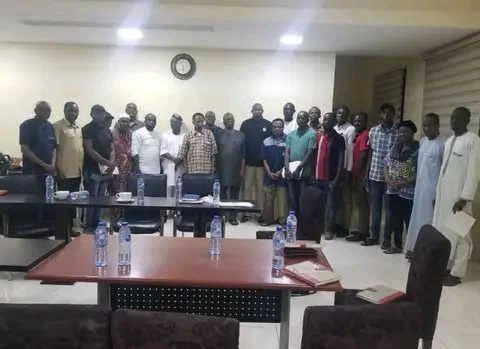According to a statement, the Students’ Union, NANS met with ASUU management to discuss the best way to end the strike. The delegation was led by President Comrade Usman Barambu and General Secretary Comrade Usman Baba Kankiya.
On Sunday, the top leadership of the Academic Staff Union of Universities (ASUU) met with the leadership of the Nigerian Union of Students, National Association of Nigerian Students (NANS) to discuss the continuing industrial action. According to a statement, the Students’ Union met with ASUU management to discuss the best way to end the strike. The delegation was led by President Comrade Usman Barambu and General Secretary Comrade Usman Baba Kankiya.
The ASUU President, Prof. Emmanuel Osodeke, took charge of the new NANS through the various agreements the union signed with the Nigerian government and their terms and conditions to bring them back to class. According to the union, the meeting lasted for more than six hours with fruitful discussions.
Osodeke criticized the government’s carelessness and failure to control the seven-month strike or make sincere attempts to do so. He claimed that the government’s plan to drive them back into the classroom by making them hungry had entirely failed.
In response to the deal between the Nigerian government and ASUU, NANS President Barambu criticized the meek attitude of the Nigerian government in stopping the strikes and enabling them to be extended for a protracted period of time, undermining the overall academic activity. nation.
Despite the fact that certain of ASUU’s demands are still vitally important to the growth of public institutions in the nation, Barambu urged the union to adjust its approach in light of the catastrophic situation facing Nigerian students and their parents.
“In the interest and dreams of our students, they should consider calling off the strike while a permanent solution to the signed contract is worked out,” the NANS president said.
He also expressed gratitude to the ASUU leaders for giving the audience, and he pledged to keep working with the organization to ensure that they had access to better facilities needed for regular learning and effective education, just like in other settings.






















